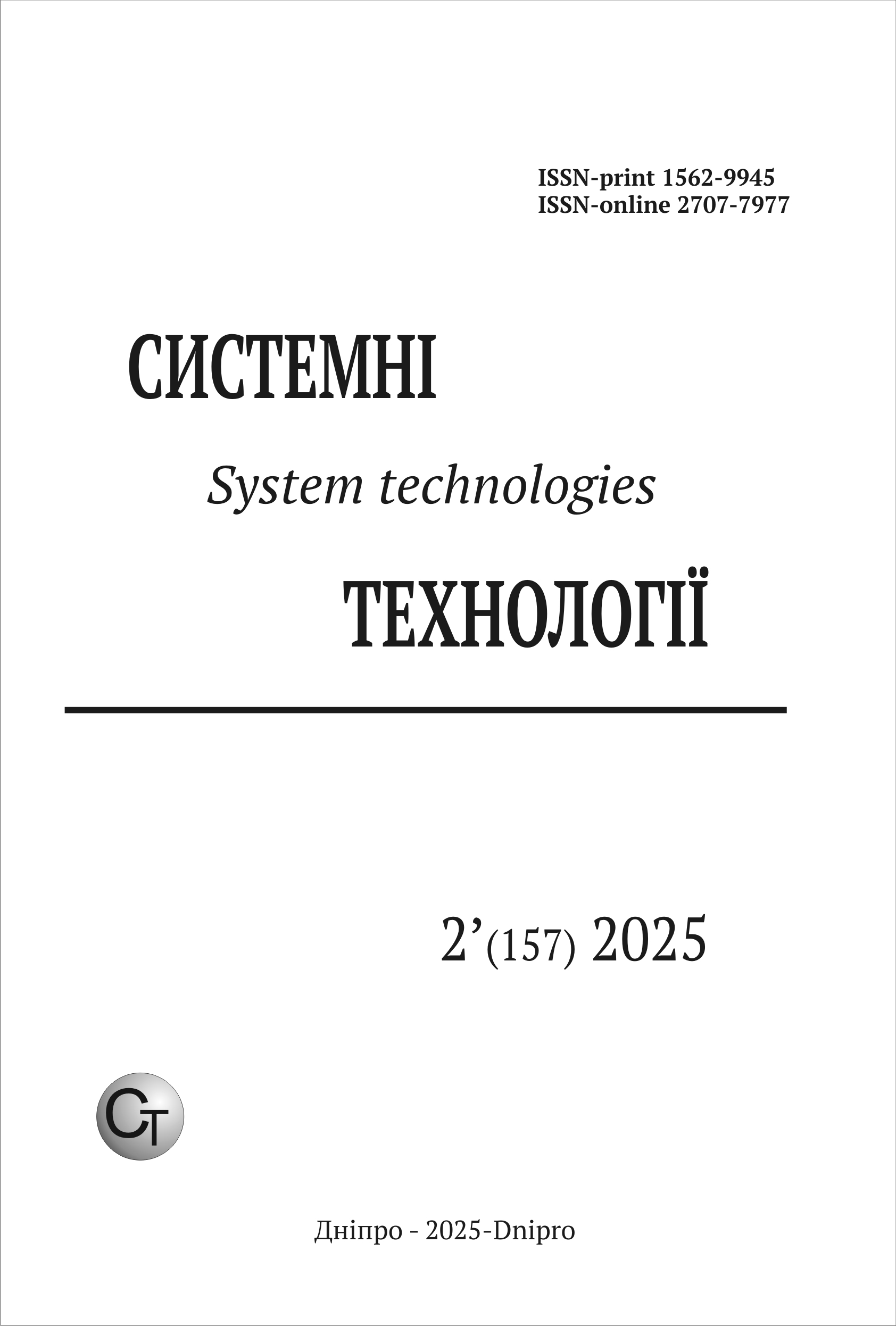МЕТОД ВИМІРЮВАННЯ ПРЕЦЕЗІЙНИХ ДЕТАЛЕЙ НА КООРДИНАТНО-ВИМІРЮВАЛЬНІЙ МАШИНІ
DOI:
https://doi.org/10.34185/1562-9945-2-157-2025-13Ключові слова:
Прецезійні вимірювання, координатно-вимірювальні машини, методологія вимірювань, автоматизовані процеси, адаптивні алгоритми корекції, систематичні похибки, випадкові складові похибок, метрологічний контроль, підвищення точності вимірювань, оптимізація траєкторій, промислові процеси, стандартизація точності, контроль геометричних параметрів, обробка вимірювальних даних, система ке-рування.Анотація
Стаття присвячена розробці методики вимірювання прецезійних деталей на координатно-вимірювальній машині (КВМ). Запропоновано комплексний підхід до підвищення точності вимірювань, що включає стохастичне моделювання похибок із використанням диференціальних рівнянь та тензорний опис просторових деформацій. Розроблено адаптивний алгоритм корекції систематичних похибок на основі ряду Фур’є-Бесселя та варіаційний метод оптимізації траєкторії з урахуванням конструк-тивних обмежень. Побудовано модель термодеформацій з використанням тензорів шостого рангу та функцій Гріна. Експериментальні дослідження підтвердили ефек-тивність методики, показавши зниження систематичних похибок на 15-20% та по-кращення оцінки невизначеності на 10-15%, що забезпечує підвищення точності коор-динатних вимірювань.
Посилання
Gao, Y., Zhang, D., & Yu, J. (2021). "A dynamic error compensation approach for coordinate measuring machines." Precision Engineering, 67, 320-331.
Feng, W., Yao, B., & Brüning, J. (2020). "Thermal error modeling and compensation for coordinate measuring machines." Measurement Science and Technology, 31(7), 074003.
Li, F., Stoddart, D., & Zwierzchowski, J. (2022). "Machine learning applications in coordinate metrology: A comprehensive review." Precision Engineering, 74, 132-154.
Muelaner, J. E., & Maropoulos, P. G. (2020). "Large volume metrology technologies for the light controlled factory." Procedia CIRP, 86, 3-13.
Schmitt, R., & Peterek, M. (2019). "Guidelines for the Selection of Measurement Strategies in Coordinate Metrology." Procedia CIRP, 81, 185-190.
Sładek, J., & Gąska, A. (2021). "Uncertainty in coordinate measurements." Measurement, 169, 108491.
Härtig, F., Lin, C., & Kniel, K. (2023). "Task-specific uncertainty for coordinate measurements using virtual CMMs." Precision Engineering, 81, 211-220.
Kruth, J. P., Van Gestel, N., Bleys, P., & Welkenhuyzen, F. (2018). Computed tomography for dimensional metrology. CIRP Annals, 67(2), 717–739.
Haitjema, H., & Morel, M. A. (2017). Uncertainty analysis in dimensional metrology. CIRP Annals, 66(2), 839–862.
Schwenke, H., & Neuschaefer-Rube, U. (2019). Advances in machine tool metrology. CIRP Annals, 68(2), 779–802.
Завантаження
Опубліковано
Номер
Розділ
Ліцензія
Авторське право (c) 2025 Системні технології

Ця робота ліцензується відповідно до ліцензії Creative Commons Attribution 4.0 International License.















